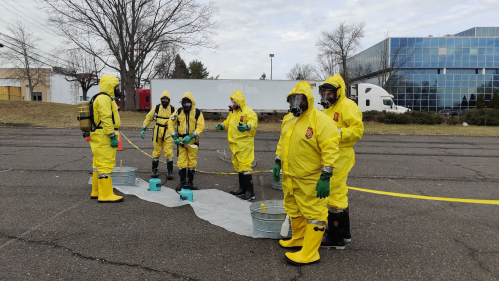Why Ongoing Worker Safety Training Is Critical to Effective Disaster Response

When it comes to disaster response and recovery operations, it is crucial that workers are prepared before there is an emergency, according to Rutgers researchers.
Their study, published in New Solutions: A Journal of Environmental and Occupational Health Policy, outlines the importance of the Worker Training Program to United States emergency and disaster-response infrastructure.
"It is essential to identify and deliver core disaster training to responders and workers on a routine basis prior to an [emergency] event," said Mitchel Rosen, an associate professor at the Rutgers School of Public Health. “The failure to provide preventative vital core training prior to has been recognized as a weakness in disaster response."
The authors of the study noted opportunities to improve disaster and emergency readiness learned through this program and provided their experiences training workers during numerous disasters between 2001 and 2016. The adequate provision of personal protective equipment was identified as a continued weakness in disaster and emergency response.
Federal guidelines are often inadequate during an emergency, according to Rutgers researchers who said that guidelines don’t carry the legal responsibility of regulations. For example, the Occupational Safety and Health Administration in March 2022 issued an alert and guidance document on identifying and controlling workplace exposure to COVID-19, that was merely "advisory in nature." A legally enforceable emergency temporary standard wasn’t issued until June 2021.
“As disasters strike, training should be supplemented with critical site-specific training to properly prepare responders and workers during the disaster as well as provide ongoing core training to prepare for the next disaster,” Rosen said.
The challenge is twofold, as “ responders must be prepared with an adequate supply of appropriate and properly fitting personal protective equipment and the training so they have the knowledge and skills on the proper use," said Rosen, who is the director of the Center for Public Health Workforce Development at the Rutgers School of Public Health.
Other lessons learned include ensuring communication systems are in place between offices, agencies and jurisdictions, and that information is available in multiple languages when needed. Researchers said proactive partnership planning will allow responders to effectively assist groups most likely to be disproportionately impacted by emergencies and disasters.
The NIEHS Worker Training Program at Rutgers and other institutions throughout the U.S. has successfully trained workers to respond effectively to disasters and emergencies. Rutgers researchers added that participants in the NIEHS Worker Training Program should be seen as a valuable source for identifying gaps and improving our country's disaster-response infrastructure and ensuring worker safety remains the top priority.
Rutgers is part of a national network of nonprofit and educational institutions tasked with ensuring workers have the knowledge and skills that they need to stay safe on the job, both in everyday conditions and when called upon to confront emergencies and disasters. The National Institute of Environmental Health Sciences (NIEHS) Worker Training Program has funded a network of organizations who can be called upon to train and be deployed to emergencies and disasters when needed.


